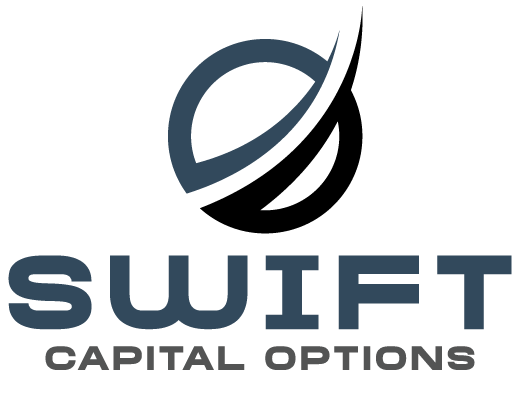SBA Loans for Startups: Financing Options for New Businesses


Small Business Administration (SBA) loans can be an excellent funding option for startups, offering favorable terms and lower interest rates compared to many traditional financing methods. At Swift Capital Options, we recognize the value of SBA loans for new businesses and want to provide you with a comprehensive guide to understanding and accessing these loan programs.
Overview of SBA Loans
SBA loans are not directly issued by the Small Business Administration. Instead, the SBA guarantees a portion of loans made by partnering lenders, reducing the risk for these lenders and making it easier for small businesses to access funding.
Key Benefits of SBA Loans for Startups:
- Lower down payments
- Longer repayment terms
- Competitive interest rates
- Flexible use of funds
- Ongoing support and resources from the SBA
SBA Loan Programs Suitable for Startups
1. SBA 7(a) Loan Program
The most common and versatile SBA loan program.
- Loan Amount: Up to $5 million
- Use of Funds: Working capital, equipment, real estate
- Terms: Up to 10 years for working capital, 25 years for real estate
- Interest Rates: Variable, based on prime rate plus a margin
- Down Payment: Typically 10-20%
2. SBA Microloans
Ideal for very small startups needing smaller amounts of funding.
- Loan Amount: Up to $50,000
- Use of Funds: Working capital, inventory, supplies, equipment
- Terms: Up to 6 years
- Interest Rates: Generally between 8-13%
- Down Payment: Requirements vary by lender
3. SBA 504 Loans
Primarily for purchasing major fixed assets like real estate or equipment.
- Loan Amount: Up to $5 million (SBA portion)
- Use of Funds: Purchase of fixed assets (e.g., real estate, equipment)
- Terms: 10 or 20 years
- Interest Rates: Fixed rate, typically below market rates
- Down Payment: As low as 10%
4. SBA Express Loans
Faster processing for smaller loan amounts.
- Loan Amount: Up to $500,000
- Use of Funds: Various business purposes
- Terms: Up to 7 years for working capital, 25 years for real estate
- Interest Rates: May be higher than standard 7(a) loans
- Down Payment: Similar to 7(a) loans
Eligibility Requirements for SBA Startup Loans
- Business Size: Must meet SBA size standards for small businesses
- Business Type: For-profit businesses in eligible industries
- Location: Physically located and operating in the U.S. or its territories
- Owner's Investment: Must have invested own time or money
- Exhausted Other Options: Must have used alternative financial resources first
- Good Character: Owners must have a sound character and credit history
- Demonstrated Need: Must show a genuine need for the loan
- Industry Experience: Relevant experience in the business field
Application Process for SBA Loans
- Determine Eligibility: Ensure your startup meets basic SBA requirements
- Choose a Loan Program: Select the most suitable SBA loan type
- Find an SBA-Approved Lender: Research and contact SBA-approved lenders
- Prepare Documentation: Gather necessary financial and business documents
- Submit Application: Complete and submit the loan application
- Underwriting Process: Lender reviews application and makes a decision
- Loan Approval and Closing: If approved, review and sign loan documents
- Fund Disbursement: Receive and utilize funds as per loan agreement
Required Documentation for SBA Loan Applications
- Business plan with financial projections
- Personal and business tax returns (if applicable)
- Personal financial statements
- Business financial statements (if already operating)
- Ownership and affiliations documentation
- Business licenses and registrations
- Lease agreements (if applicable)
- Detailed use of loan proceeds
- Collateral documentation (if required)
- Personal and business credit reports
Tips for Improving Your Chances of Approval
- Develop a Strong Business Plan: Clearly outline your business model and projections
- Improve Your Credit Score: Work on personal and business credit if needed
- Demonstrate Industry Experience: Highlight relevant skills and knowledge
- Show Personal Investment: Prove you've invested your own resources
- Prepare Detailed Financial Projections: Provide realistic and well-researched forecasts
- Offer Collateral: Be prepared to offer personal or business assets as collateral
- Choose the Right Lender: Research lenders experienced in your industry
- Be Transparent: Disclose all relevant information upfront
- Seek Professional Assistance: Consider working with a financial advisor or loan specialist
Challenges for Startups in Securing SBA Loans
- Limited Operating History: New businesses may struggle to prove viability
- Lack of Collateral: Startups often have limited assets to offer as security
- Credit Requirements: Personal credit history is heavily scrutinized
- Cash Flow Concerns: Demonstrating ability to repay can be challenging
- Industry Risk: Some industries are considered higher risk by lenders
- Lengthy Process: SBA loans can take longer to process than other options
- Extensive Documentation: The application process requires significant paperwork
Alternatives to SBA Loans for Startups
- Angel Investors: Individual investors providing capital for equity
- Venture Capital: Professional firms investing in high-growth startups
- Crowdfunding: Raising small amounts from many individuals
- Business Credit Cards: For short-term financing needs
- Equipment Financing: Specifically for purchasing business equipment
- Grants: Non-repayable funds from government or private organizations
- Peer-to-Peer Lending: Online platforms connecting borrowers with individual lenders
How Swift Capital Options Can Help
Navigating the SBA loan process can be complex, especially for startups. Here's how we can assist:
- Loan Program Selection: Help identify the most suitable SBA loan program
- Application Preparation: Assist in gathering and organizing required documentation
- Business Plan Review: Provide feedback to strengthen your business plan
- Financial Projections: Help create realistic and appealing financial forecasts
- Lender Matching: Connect you with SBA-approved lenders suited to your needs
- Application Review: Ensure your application is complete and compelling
- Ongoing Support: Offer guidance throughout the loan application process
Your Next Steps
Ready to explore SBA loans for your startup? Here's what to do:
- Review your business plan and financial projections
- Assess your eligibility for different SBA loan programs
- Start gathering necessary documentation
- Research SBA-approved lenders in your area
- Contact Swift Capital Options to discuss how we can support your SBA loan application process
Remember, while SBA loans can be an excellent funding option for startups, they require careful preparation and a strong application. The right guidance can significantly improve your chances of approval.
Are you ready to take the next step in securing an SBA loan for your startup? Reach out to Swift Capital Options today. Let's work together to prepare a compelling loan application that showcases your business's potential and increases your chances of approval. With our expertise guiding you through this crucial process, you can approach lenders with confidence, knowing you have a well-prepared application and a solid plan for your business's future. Your startup's success starts with the right funding – let's secure the SBA loan that can help turn your business dreams into reality!




